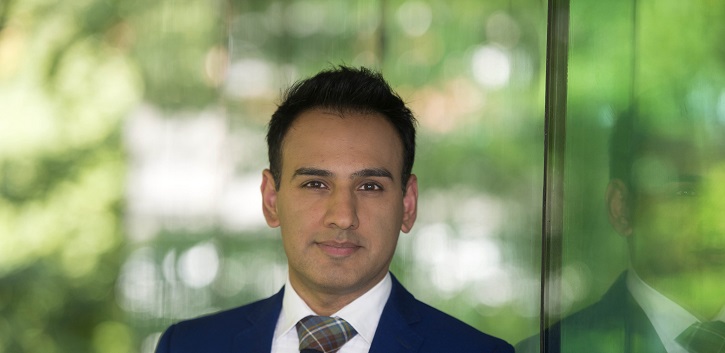Op-Ed: ‘We are not that different from Saudi Arabia’

The Unites States of America voted with Botswana, Barundi, Egypt, Ethiopia, Bangladesh, China, India, Iraq, Japan, Qatar, Saudi Arabia and the United Arab Emirates against a UN Human Rights Council resolution which specifically condemned the death penalty as a punishment for consensual same-sex relations. This move has left many in the US specifically and the whole ‘Western’ world aghast.
Here was the US, the leader of the free world, seemingly aligning itself with Islamic countries widely disdained as oppressive on social issues, particularly as relates to gender and sexuality.
But why should we be so shocked? These days, it’s not so easy to divide global culture along even loosely hemispheric lines. Just last month, on September 26, Saudi Arabia’s King Salman issued a decree that will allow women to drive — welcome news to the numerous Saudi feminists who have fought a long battle for this right. It’s a right that women have long had here in Ireland, but it’s an unmistakable sign of forward motion.
And in our own country, we see intensifying debates around the repeal of the eighth amendment, which recognises equally the rights of gestational parent and unborn fetus. Abortion rights are said to be among a number of public referendums that will be put before the country next summer. Whatever transpires with the eighth amendment, Ireland boasts a handful of other progressive firsts: the country voted for equal marriage in 2015 and is now led by a mixed-race, openly gay Taoiseach, Leo Varadkar. Australia, too, is currently in the process of a public vote on equal marriage: polls indicated that the people will vote in support, with results expected after November 7.
And back in the so-called Muslim world, Pakistan’s Allama Iqbal Open University, located in the capital city of Islamabad, has announced that it will offer free education to the transgender community in order to lift the stigma attached with the marginalised community.
All this, and yet we are often expected to accept and act in accordance with the narrative that in some way we Irish are ‘worlds apart’ from countries beyond Europe and North America. Is this really the case? Is it time for us to un-condition our mind and actions in our thinking that the ‘West’ is more enlightened on matters and the ‘rest’ are catching up.
In any country, gender and sexuality are shaped by religion, which has evolved along distinct trajectories but in every case supplies adherents a basis for understanding the world. Today, we are pulled into the politics of understanding, attaching or separating ‘religious’ or ‘secular’. Religion scholars like me spend a long time thinking about complicated issues that are then reduced in public discourse to sartorial matters — what we wear or what we don’t wear.
Binaries reign supreme — and all the more effectively when we try to classify issues of gender and sexuality as ‘traditional’ or ‘modern’. Issues we think of as modern may be inescapably salient in our own times were present but silenced in the past. ‘Traditions’ aren’t so much regressives as they are markers of hegemony —what has been accorded authority. It is the challenge to traditional authority structures in religions and society that has allowed us to finally see vibrant diversity.
The world is changing precisely because of how important diversity, with all its complexities, is to society. The social media boom now pushes us closer to streets and homes to places we never imagined or imagined in the most extreme way. The challenges and counter-narratives are now in full bloom, and the time for generalizing about places and peoples is past.
Ideas and actions grow when they react with each other. As an academic, I appreciate that it is through cross-disciplinary work in the arts and humanities that we begin to explore the deeper problems and questions in all their dimensions. We are beginning to appreciate that diversity and difference enriches our society. And yet appreciating the depth of pluralism and diversity shakes our own world while we move toward appreciating a completely different one, ideally an equal one.
Grand narratives pitting country against country or continent against continent are not helping us understand the world. We see progress made in Saudi Arabia and Pakistan when they expand rights for women and uphold the humanity of transgender people, while here in Ireland we are still arguing about fundamental rights for women.
There isn’t a single continuum from backward to progressive onto which we could plot these current events. It is this diversity and pluralism that challenges the fanatics who play on cultural divides. Adopting a more global approach to the ‘shared troubles’ of gender and sexuality can be effective tools against extremists on all sides.
Unconditioning ourselves from totalizing, dichotomous thinking begins locally. Here at University College Cork, the LGBT Staff Network will celebrate its 10-year anniversary this afternoon (October 12). There will be much cheer and pomp as the President of the University, Professor Patrick O’Shea, leads a succession of distinguished guests addressing the university community. Milestones like these carve out space for us to appreciate our differences and see how, pulling together, we progress. The times of uniformity and monoliths are gone, we are charged now with how we live in our differences, equally.
Amanullah De Sondy is a Senior Lecturer in Contemporary Islam at University College Cork, and author of The Crisis of Islamic Masculinities, published by Bloomsbury. The UCC LGBT Staff Network’s 10-year anniversary celebration will take place at the University’s Aula Maxima on October 12 at 4:30pm. All welcome.
